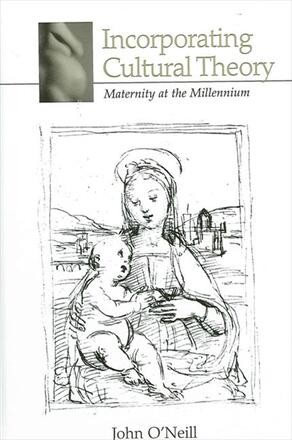
Incorporating Cultural Theory
Maternity at the Millennium
Alternative formats available from:
Uses psychoanalysis to reconsider cultural studies with a focus on wholeness and integration.
Description
Incorporating Cultural Theory addresses the status of the body and sexuality in cultural criticism by focusing on issues of sexuality, intimacy, and identity. With a perspective grounded in body politics, O'Neill offers careful but contesting studies of theorists including Barthes, Derrida, Lyotard, Freud, Lacan, Hegel, Parsons, and Merleau-Ponty, that amplify his own overarching theoretical framework. Concluding chapters demonstrate the practicality of the author's body-political critical theory, offering analyses of Jurassic Park and the London Millennium Dome as cyborg practices designed to bypass the reproductive anxieties of bodies, families, and communities by shape-shifting the loss of a civic boundary. The overarching frame of the book—maternity at the millennium—provides a unique topic for using psychoanalysis to reconsider cultural studies, and O'Neill argues throughout for keeping cultural studies focused on wholeness and integration, instead of the fragmentation and alienation embraced by postmodern theoretical excesses.
John O'Neill is Distinguished Research Professor of Sociology at York University in Toronto, a Member of the Centre for Comparative Literature at the University of Toronto, and a Fellow of the Royal Society of Canada. He is the author of several books, including The Poverty of Postmodernism, and the coeditor of The Journal of Classical Sociology and the international quarterly Philosophy of the Social Sciences.
Reviews
"O'Neill is a master stylist. No reader will doubt the breadth of knowledge and reading that mark his intellectual mastery of philosophy and sociology, as well as of postmodern theories. This book is not only a trenchant analysis of twentieth-century Anglo American society, but also a demonstration of cultural theory in a new mode." — Ellie Ragland, University of Missouri
"The status of the body and sexuality in critical theory is of immense importance at a time when postmodern theory tends to embrace a fractured, decentered view of the subject, thus abandoning the ground of social change in people's everyday lives." — Ben Agger, University of Texas at Arlington